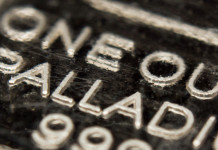
[miningmx.com] — AUSTRALIAN prime minister Julia Gillard won a major victory that may help revive her Labour Party’s struggling fortunes after divisive laws for a profit tax on mining companies narrowly passed through parliament’s lower house.
After 18 months of acrimonious debate that brought down former prime minister Kevin Rudd, key crossbench lawmakers agreed after a marathon sitting that extended into the early hours of Wednesday to back Gillard’s minority government on the 30% profit tax in return for minor concessions.
Gillard wants the new tax on mining profits to pay for a company tax cut and boost payments into worker pension funds, to spread the benefits of Australia’s resources boom to parts of the economy struggling with the global downturn.
“If we want to leave a stronger Australia for our children, if we want to build the nation, then it takes brave policy proposals like this which spread the bounty of our country to every corner of the nation,” Treasurer Wayne Swan told parliament.
In 2010, mining companies ran a public campaign against Rudd’s original 40% tax plan, feeding into a voter backlash that has seen opinion poll support for Gillard and Labour remain near record lows.
Gillard’s government relies on three independents and a Green lawmaker for its one-seat majority, and the fate of the mining tax remained uncertain until late Tuesday because of concerns held by the Greens.
But the bills passed by 73 votes to 71 with support from the Greens after the government committed to find A$70m ($69m) a year of budget savings by delaying a tax break on overseas borrowings.
The legislation will now go to the upper house Senate in early 2012, where the government and the Greens have the numbers to ensure it is passed into law.
The mining tax, being eyed by other resource nations in South America and Africa, is a key policy for Gillard, who struck a deal on the tax with global miners BHP Billiton, Rio Tinto and Xstrata in July 2010.
Polls show her government would be wiped out if an election was held now and Gillard has pinned her hopes of a voter turnaround, and re-election in 2013, on higher payments into worker pension funds linked to the tax, and acceptance of a carbon tax designed to curb greenhouse gas emissions and fight climate change.
“For a prime minister with a reputation for policy disasters, deals coming undone and even circumstances outside her control conspiring against her, this week must have had an almost dreamlike quality,” political commentator Laura Tingle said in the Australian Financial Review newspaper.
Opposition conservatives accused the government of doing secret deals with the Greens that would hurt investment confidence, while Xstrata warned the government against additional levies on top of the 30% tax.
Industrial and Commercial Bank of China, the world’s biggest lender by market value, said it was already starting to see mining projects in Australia being held up due to the impending mining tax.
“We now have already started to perceive part of the unwillingness to proceed with some of these projects,” Han Ruixiang, the head of ICBC Australia, told a business lunch in Melbourne.
“So I think it will negatively affect future investment from the Chinese corporate sector into Australia.”
Greens lawmaker Adam Bandt said agreements on the tax, as well as a carbon price and passage of laws cracking down on tobacco companies, all strongly opposed by big business, proved the effectiveness of Gillard’s government.
“As we look at the end of the year and what’s happened, this minority parliament is in fact a working parliament,” Bandt told reporters.
Company tax cuts
The tax will start on July 1, 2012, and will raise A$7.7bn ($7.8bn) in its first two years, which will be earmarked to fund company tax breaks and compensate business for higher payments into compulsory worker pension funds.
It will also pay for billions of dollars of investment in infrastructure in regional Australia, particularly the key mining states of Western Australia and Queensland.
The tax faced concerted opposition from Labour’s conservative opponents and small- and mid-sized miners, led by iron ore magnate Andrew Forrest and his Fortescue Metals Group, who said the tax favours global miners.
But the government said the tax would not hurt Australia’s record investment in mining, with planned capital investment of A$430bn in Australian resource projects.
Fuelled by strong demand from China, Australia’s government commodities forecaster said in June it expected iron ore exports to grow 8% to 437 million tonnes in the current year to June 30, 2012, with export income to grow 17% in the year despite lower world prices.









